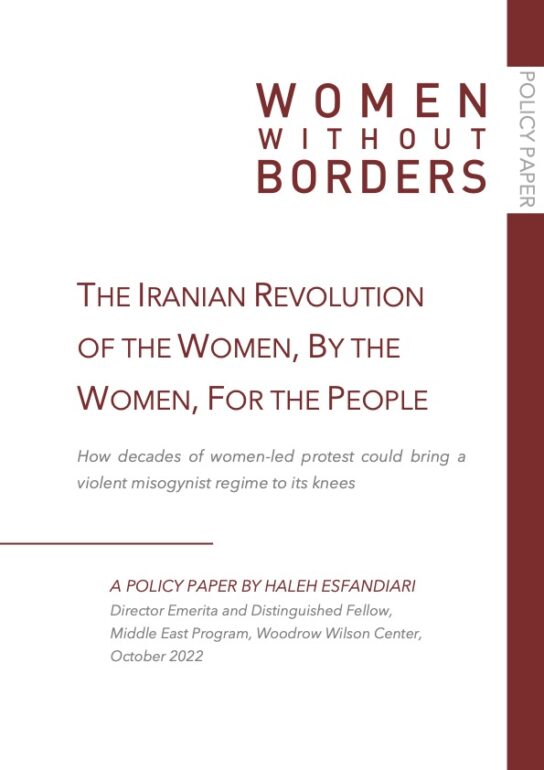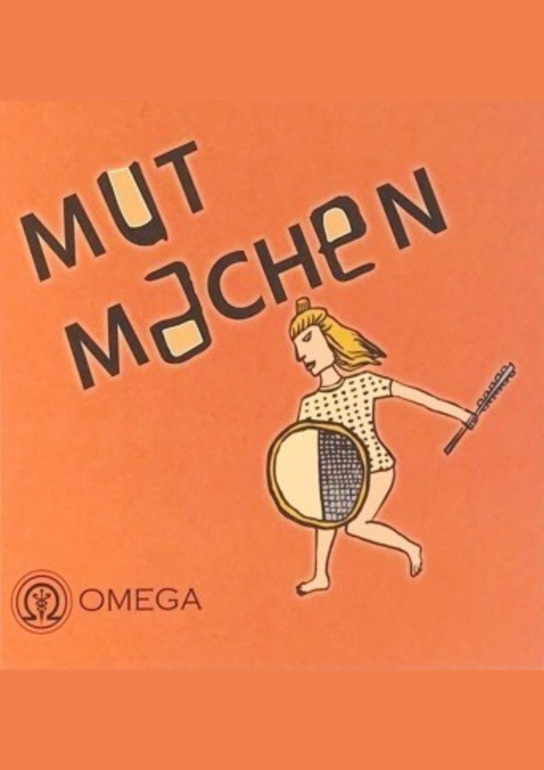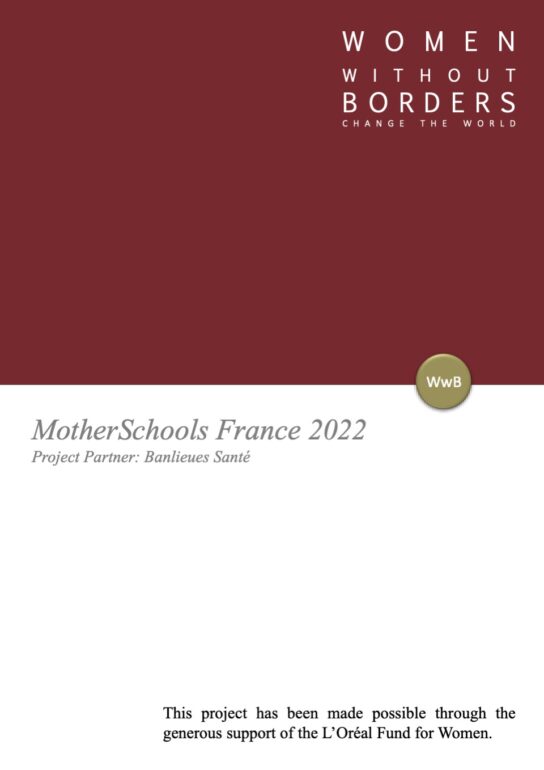In our third policy paper, Dr Haleh Esfandiari, Director Emerita and Distinguished Fellow of the Middle East Program at the Wilson Center, reflects on the ongoing protests in Iran. Embedding the demonstrations within their longer history, she highlights how global and internal solidarity with the current rebellion is rooted in decades of women-led protest against the Islamic Republic. Dr Esfandiari puts forward a series of recommendations, including that global actors condemn the actions of the Iranian regime, demand the release of the prisoners, and facilitate internet and visa access to Iran’s people. Further, she calls on the international community to acknowledge and support the important role of women in challenging violent misogynist systems.
A new Iranian generation of women rising
The revolution of the women in Iran is entering its third week, and women continue to be at the forefront of protests that have swept the country after a young woman died in police custody following her arrest for violating the hijab, or Islamic dress code. Despite the massive presence of security forces on the streets, more and more women from all walks of life have joined the protests—and without the hijab—in open defiance of the authorities.
The majority of these women have been young—in their twenties and thirties—and of the generation that was born into and grew up under the Islamic Republic. They are in rebellion against a regime that has delegated women to the status of second-class citizens, interfered in their public and private lives, deprived them of all the rights they had gained before the Islamic revolution, and does not tolerate dissent by women or anyone else. They have been joined by young men of the same generation who have supported their call for ‘Woman, Freedom, Life,’ and ‘Justice, Liberty, Voluntary hijab.’
These women and men want an end to clerical and dictatorial rule, and to being treated as pariahs in the world because they are citizens of Iran. They want an end to official corruption, to discrimination against women and minorities, to unemployment, poverty, hunger, and economic disadvantage. In brief, a women’s revolution over the imposed Islamic dress code has evolved into a much broader demand: for the end of the current regime and for a more hopeful future.
Read the entire policy paper here.





